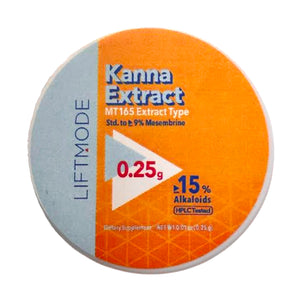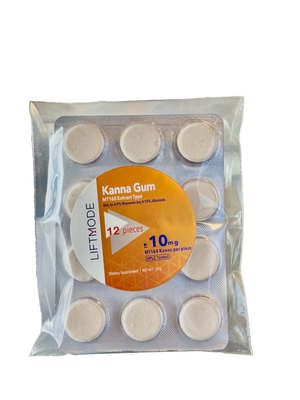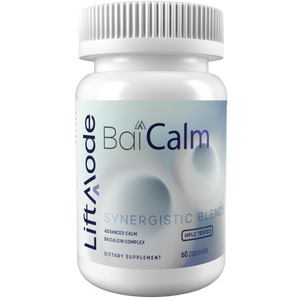What is Melatonin?
Melatonin (sometimes misspelled as ‘Melotonin’, and also known by the scientific name (N-acetyl-5-methoxytryptamine), is a hormone and neurotransmitter produced by the human brain to assist with regulation of sleep. Melatonin is also found in various plants and food sources, including tomatoes, walnuts, and cherries. [1] Importantly, studies on fasting people have found that Melatonin concentrations drop by around 20% within 2-7 days.[2] This indicates that, although Melatonin is produced by our bodies, we also require a certain amount of intake through dietary sources. Even more interestingly, it seems that people who eat more fruits and vegetables (higher plant intake) may have improved levels of Melatonin by up to 16% compared to standard diets. [3] The important message is that Melatonin can be thought of as a ‘semi-essential’ nutrient, meaning we need to acquire some of it through our diets, or by taking supplements. In the human body, Melatonin is produced by the pineal gland through the conversion of serotonin.[4] Melatonin production is known to respond to changes in the dark-light cycle. As your body senses darkness, it starts producing more Melatonin, which acts as a neurotransmitter to other parts of your brain and body to tell them to start getting ready for sleep.What Are the Top Melatonin Benefits?
Below, the top three Melatonin benefits are discussed. Apart from the most important Melatonin benefits, which include improvements in sleep quality, mood, and immune functions, this amazing natural hormone is often used to combat jet lag, help with symptoms of stomach ulcers, support a healthy circulatory system, and potentially to reduce heartburn symptoms.[5]1. Melatonin for Sleep: Improve Sleep Quality
2. Melatonin for Mood: Improve Feelings of Wellbeing
Importantly, Melatonin supplements can also be used to improve mood and feelings of well-being.[7] This is through two key mechanisms. Firstly, there is a strong relationship between sleep and mood. Studies have found that even a small lack of sleep can result in decreased mood and, conversely, better sleep promotes a good mood. Furthermore, a better mood helps to improve sleep quality while a bad mood often results in decreased sleep. [8] Secondly, there is recent evidence suggesting that Melatonin may help to improve mood directly.[9] This is thought to be through its interactions with other hormones and neurotransmitters in your body, and may possibly be a natural way of helping to improve sleep (as we’ve already established that a better mood tends to correspond to better sleep).3. Melatonin for Health: A Powerful Antioxidant Supplement
Melatonin is also a powerful antioxidant supplement, which means that it helps your body to stay healthy.[10] Antioxidants found almost exclusively in plant-based foods and supplements, are able to destroy dangerous reactive compounds in your body called ‘free-radicals’. In a zombie apocalypse scenario, antioxidants could be thought of as the ‘zombie-hunters’ and the free-radicals would be the zombies. Free-radicals actually have a lot in common with zombies in that they quite literally destroy human cells by causing a chain reaction of oxidation.[11] Interestingly, oxidation of carbon produces heat and carbon dioxide. In layman’s terms, oxidation of carbon is the chemical process that occurs in a fire. So, technically-speaking, free-radicals are not only like zombies, they’re more like zombies who also throw Molotov cocktails. Now, you can see the importance of antioxidants in keeping these reactive chemical species in check.Melatonin Dosage: What is the Correct Serving Size for Melatonin Supplements?
Melatonin Side Effects
A lot of people online are searching for Melatonin side effects and even for Melatonin overdose. Luckily, there is no reason to be concerned about this natural sleep aid supplement. As with most compounds that your body produces naturally, there are biological systems in place to prevent an excess amount of Melatonin from accumulating in your bloodstream. The possible Melatonin side effects may include headaches, daytime sleepiness, dizziness, stomach cramps, and irritability. [13] Please speak to your doctor before using Melatonin supplements if you have any medical conditions or are taking any medication. Melatonin should not be used by pregnant or breastfeeding women.Medical Disclaimer
Not intended to treat, diagnose, or cure any disease or ailment. Please read and fully understand potential adverse effects before using this product. These statements have not been reviewed by the FDA and are not written by a medical professional. Please consult your doctor before using any supplements, especially if you have any medical conditions.
Tristan
B.Sc. in Molecular Biology and Biochemistry Researched & written by Tristan and verified by the Liftmode.com Research Team




